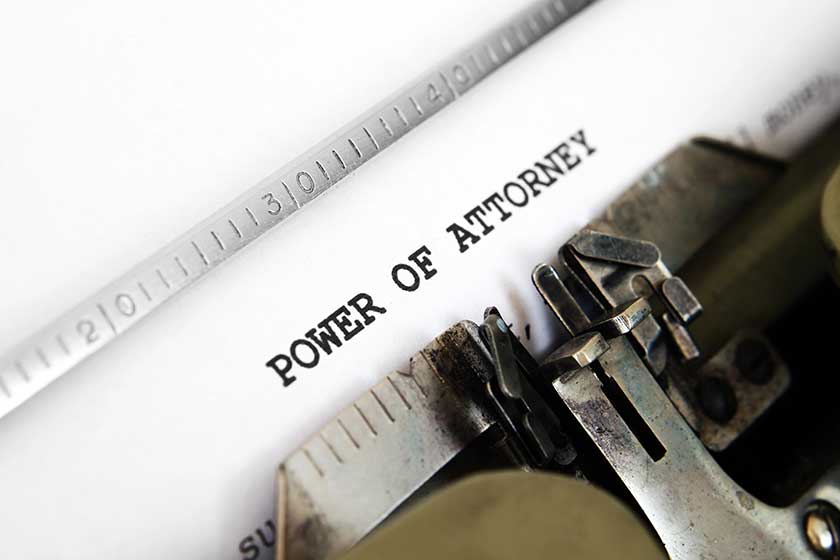Understanding the future care and legal needs of your elderly parent is vital. A power of attorney can protect their interests, ensuring trusted individuals handle their financial and medical decisions. This comprehensive guide provides key information about setting up a Power Of Attorney For Your Elderly Parent, helping you navigate this important process with confidence and clarity.
What is a Power of Attorney?
A power of attorney (POA) is a legal document that grants one person the authority to act on behalf of another in legal and financial matters. For your elderly parent, this means that you or another trusted individual can make important decisions about their health care, finances, and other vital aspects of their life when they are no longer able to do so themselves.
Types of Power of Attorney
There are several types of power of attorney, each serving different purposes. Understanding these can help you and your parent make informed decisions about which type best suits their needs.
- General Power of Attorney: A general power of attorney grants broad powers to the appointed person, allowing them to handle financial and legal matters on behalf of your parent. This can include managing bank accounts, signing checks, selling property, and handling other financial transactions.
- Durable Power of Attorney: Unlike a general power of attorney, a durable power of attorney remains in effect even if your parent becomes incapacitated. This type is essential for long-term planning, ensuring that the appointed individual can continue to make decisions without interruption.
- Medical Power of Attorney: A medical power of attorney specifically allows the appointed person to make health care decisions for your parent. This can include consenting to or refusing medical treatments, choosing healthcare providers, and making end-of-life care decisions.
- Springing Power of Attorney: A springing power of attorney only becomes effective under certain conditions, typically when your parent is declared incapacitated by a doctor. This type provides a safeguard, ensuring that your parent retains control over their affairs until they are truly unable to manage them.
Choosing the Right Person
Selecting the right person to act as your parent’s power of attorney is one of the most important decisions you will make. This individual should be trustworthy, responsible, and capable of handling potentially complex legal and financial matters. Discuss the decision with your parent to ensure they are comfortable and confident in the person chosen.
Benefits of Having a Power of Attorney
Establishing a power of attorney offers numerous benefits, providing peace of mind for both you and your parent.
First, it ensures that your parent’s wishes are respected and followed, even if they are unable to communicate them. This can prevent unnecessary disputes among family members and ensure that decisions are made in your parent’s best interest.
Second, a power of attorney can protect your parent’s financial assets. By having a trusted individual manage their finances, you can prevent potential financial abuse and mismanagement.
Finally, having a power of attorney in place can expedite decision-making during emergencies, ensuring that there are no delays in your parent’s care or financial matters.
Steps to Establish a Power of Attorney
Creating a power of attorney involves several key steps. Here’s a detailed look at the process to help you get started.
- Discuss with Your Parent: The first step is to have an open and honest discussion with your parent about the need for a power of attorney. Explain the benefits and how it can protect their interests. Ensure they are involved in every step of the decision-making process.
- Consult an Attorney: While it is possible to create a power of attorney without legal assistance, consulting with an attorney can ensure that the document is drafted correctly and complies with state laws. An attorney can also provide valuable advice on which type of power of attorney is most appropriate for your parent’s situation.
- Draft the Document: Once you have consulted with an attorney, the next step is to draft the power of attorney document. This should clearly outline the powers granted and any specific instructions your parent wants to include.
- Sign and Notarize: After the document is drafted, it must be signed by your parent and the appointed person in the presence of a notary public. This step is crucial to ensure the document is legally binding.
- Store the Document Safely: Once the power of attorney is signed and notarized, it should be stored in a safe and accessible place. Ensure that copies are provided to relevant parties, such as healthcare providers, financial institutions, and family members.
- Review and Update Regularly: It is important to review and update the power of attorney periodically. Circumstances can change, and the document should reflect your parent’s current wishes and needs.
Ensuring Your Parent’s Security
Setting up a power of attorney for your elderly parent is a significant step in ensuring their well-being and protecting their interests. By understanding the different types of power of attorney, choosing the right person, and following the necessary steps, you can provide your parent with the security and peace of mind they deserve.
If you are looking for a supportive and enriching environment for your loved one, consider our retirement community. We offer a range of activities and events, health and fitness programs, and numerous amenities to ensure a fulfilling lifestyle.
Contact us today to learn more and schedule a visit.







